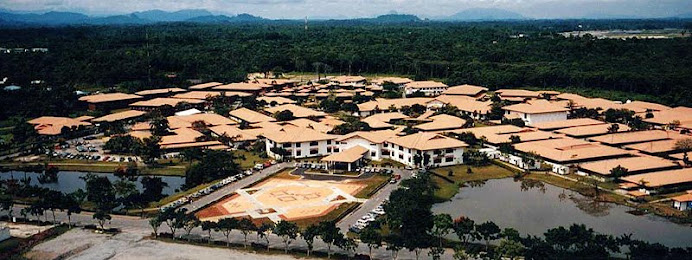One of the coolest things about traveling to a new culture is taking part in new holidays and festivals. Before coming to Malaysia I was curious which holidays I would catch, so I looked up a list of all of the major ones. Holidays in Malaysia can be confusing because, as in the U.S., each of the states and the federal government recognize their own particular selections.
I arrived in Malaysia just after Christmas as well as two big Muslim holidays, one celebrating the end of the fasting month of Ramadan and the other recognizing the end of the hajj pilgrimage period. My second day here, December 29th, was the first day of year 1430 according to the Islamic calendar. I won't be staying long enough to catch Gawai Dayak (in Sarawak only, on June 1 natives visit their friends and relatives for feasting and thanksgiving), National Day (independence from Britain is celebrated August 31st), or Deepavali (the Hindu festival of lights is October 17th). But I knew ahead of time that I'd be here for Chinese New Year, and I hoped to spend it with some Chinese. It was my good fortune that Seon and I were invited by Valerie, a UNIMAS grad who we know from church, to spend Chinese New Year in Sibu with her family.
Just like Whitworth, UNIMAS is currently in its second semester. The academic calendar for this semester is quite strange though. Starting January 5th we had three weeks of class. Then by January 26th we were already taking our week-long mid-semester break. This is necessary because Chinese New Year is the most important Chinese holiday of the year, and Sarawak's population is almost 30% Chinese. Starting this Monday, we'll have ten consecutive weeks of lectures, then a 'dead week' for exam prep, and finally a span of three weeks for exams.
